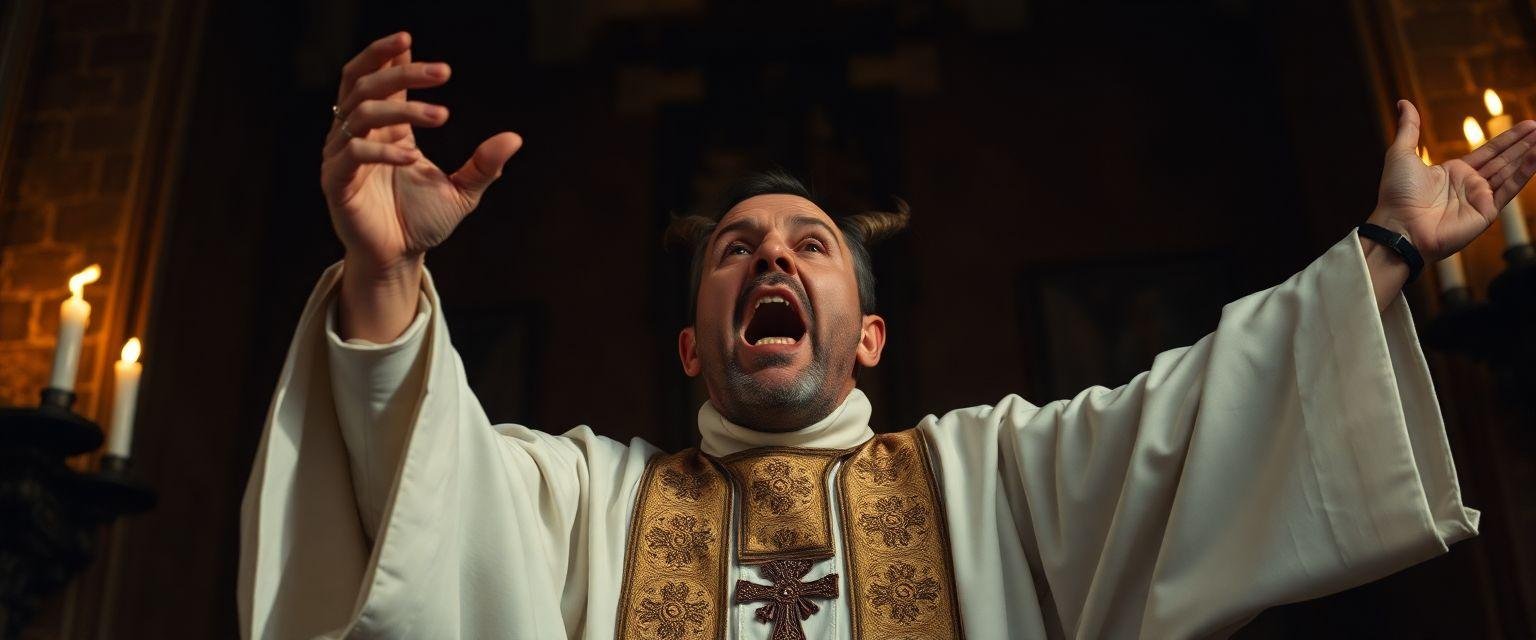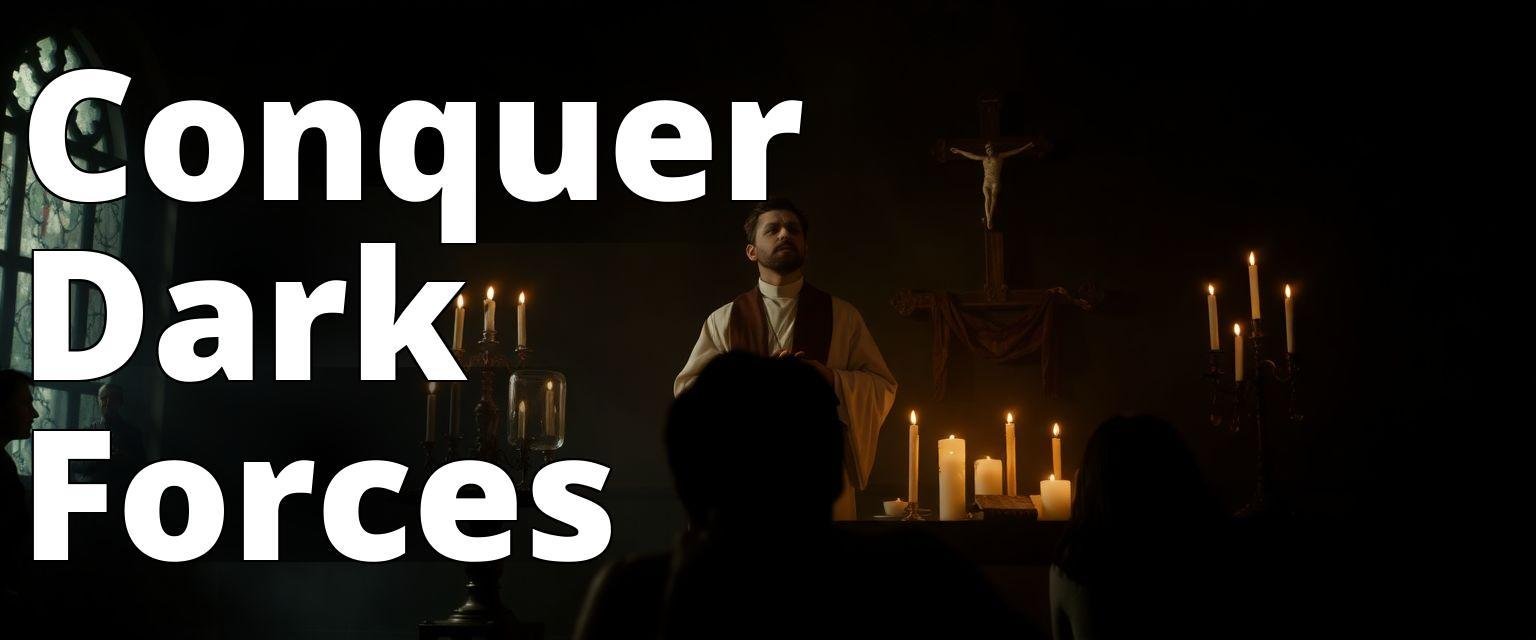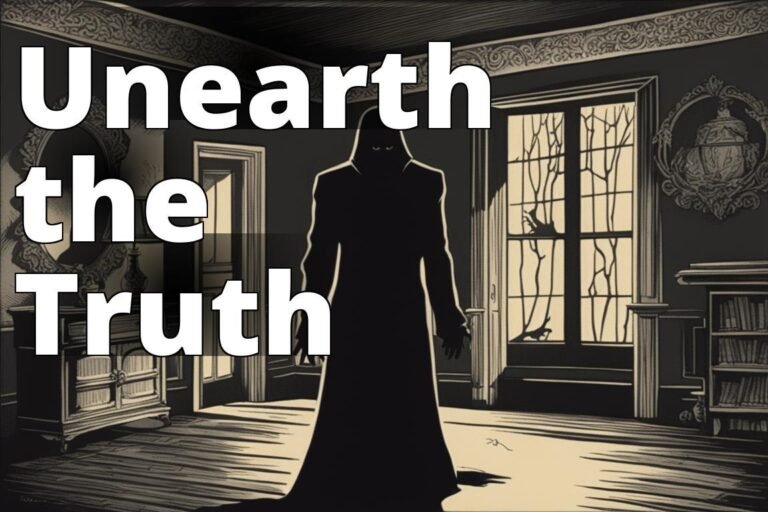Exorcism
Exorcism. The very word can send chills down one’s spine or provoke an eye-roll, depending on one’s beliefs. But what really is an exorcism? Is it a legitimate act of spiritual warfare, a relic of religious tradition, or simply a dramatic display of superstition? The world has always been fascinated by stories of demonic possession and the rituals to expel these dark forces. These tales have persisted through centuries, capturing our imaginations and fueling debates about their validity. Today, as we delve into the world of exorcisms, we aim to unravel the mysteries that surround this enigmatic practice.
Learn About Exorcisms
Discover essential insights into performing an exorcism, including its purpose and processes.
– An exorcism is a religious practice aimed at casting out demons or evil spirits from an individual or place.
– The purpose of an exorcism is to restore spiritual peace and protect the afflicted from malevolent forces.
– Only qualified individuals, typically clergy or trained professionals, should perform an exorcism due to the psychological and spiritual risks involved.
What is an exorcism?
An exorcism is, at its core, a religious or spiritual ritual aimed at evicting demons or evil spirits believed to have possessed a person or place. The term itself is derived from the Greek word “exorkizein,” meaning “to bind by oath.” It is a rite deeply embedded in various religious traditions, with its roots tracing back to ancient civilizations long before the advent of modern Christianity.
Historically, exorcisms have been performed by religious figures across many cultures, from the shamans of indigenous tribes to the priests of the Catholic Church. The practice is not limited to Christianity; it appears in Hinduism, Islam, Judaism, and even in ancient Babylonian texts. Each tradition comes with its own sets of rituals, prayers, and beliefs about the nature of evil and the means of its expulsion.

Thought-Provoking Question:
Could the universal prevalence of exorcism practices across different cultures suggest a fundamental human need to confront and externalize inner fears?
What is the purpose of an exorcism?
At its heart, an exorcism serves the purpose of liberationfreeing a person or place from the clutches of malevolent forces. The underlying belief is that certain behavioral or physical ailments are caused by spiritual entities that have taken up residence within the afflicted individual. In this context, an exorcism acts as a spiritual cleansing, a battle between good and evil where the exorcist seeks to restore harmony and peace.
In a broader sense, exorcisms can also serve as a means of reaffirming faith. For both the possessed and the community, the ritual can reinforce religious beliefs and the power of divine intervention. It provides a tangible demonstration of the spiritual world’s intervention in the material realm, often bolstering the faith of those involved.

Thought-Provoking Question:
Is the success of an exorcism more about spiritual conviction than actual supernatural forces at play?
Who can perform an exorcism?
The authority to perform an exorcism typically resides with ordained religious figures, such as priests, pastors, or spiritual leaders. In the Catholic Church, for instance, only a priest with explicit permission from his bishop may conduct the rite. This restriction underscores the Church’s view of exorcism as a serious and potentially dangerous undertaking.
However, outside of structured religious institutions, exorcisms can be performed by anyone deemed to have spiritual authority or knowledge. This can include shamans, healers, or even laypeople in charismatic Christian movements. The belief is that the power to expel demons comes not from the individual but from a higher spiritual authority invoked during the ritual.

Insider Tip: According to Father Gary Thomas, a well-known exorcist in California, the key to a successful exorcism is not just the ritual itself but the exorcist’s unwavering faith and the community’s support.
Thought-Provoking Question:
Does restricting the performance of exorcisms to certain individuals solidify the belief in their supernatural elements, or does it merely control narrative and access?
How is an exorcism performed?
The process of an exorcism can vary significantly depending on the religious tradition and the nature of the possession. In the Catholic Church, the rite of exorcism involves a series of prayers, blessings, and commands directed at the possessing entity. The ritual may include the recitation of specific scriptures, the use of holy water, and the sign of the cross. The exorcist demands the demon’s name and uses it to command its departure.
In other traditions, such as among some Pentecostal Christians, exorcisms are more spontaneous and can include fervent prayers, speaking in tongues, and laying on of hands. In some cultures, music, dance, and even physical restraints might be employed to aid the process.

Reference Link: For more on the Catholic Church’s views and procedures on exorcism, refer to the Vatican’s guidelines.
Insider Tip:
Dr. Richard Gallagher, a psychiatrist who consults on cases of alleged possession, emphasizes the importance of distinguishing between mental illness and actual possession, which can often require a team of psychologists and religious experts.
What happens after an exorcism?
The aftermath of an exorcism can be as varied as the ritual itself. In successful cases, the individual is expected to return to a state of normalcy, free from the symptoms and behaviors associated with possession. This can include a renewed sense of peace, spiritual clarity, and improved mental and physical health.
However, the process can also be psychologically and physically taxing for both the subject and the exorcist. There are cases where the symptoms return, necessitating further intervention. In some instances, the individual may require ongoing spiritual guidance or therapy to fully integrate back into their community and maintain their liberation.

Thought-Provoking Question:
Is the perceived success of an exorcism a result of psychological relief and community support rather than an actual expulsion of spirits?
Are there risks associated with exorcism?
Yes, exorcisms come with inherent risks, both psychological and physical. The process can be distressing and traumatic, potentially exacerbating existing mental health issues or creating new ones. Cases of physical harm have also been reported, especially in instances where the ritual involves physical restraint or intense physical activity.
The lack of scientific evidence supporting the existence of demonic possession means that many cases of alleged possession could be manifestations of untreated mental health disorders. This raises ethical concerns about the appropriateness of using exorcism as a treatment method, particularly in lieu of medical intervention.

Insider Tip: Dr. Joe Nickell, a renowned skeptic and paranormal investigator, advises that exorcisms should be approached with caution, emphasizing the importance of seeking medical and psychological evaluations first.
Reference Link: For a deeper understanding of the psychological implications of exorcism, check out the American Psychological Association’s resources.
Conclusion
Exorcisms remain one of the most intriguing and controversial practices in the realm of religious and spiritual rituals. While they continue to captivate both believers and skeptics alike, the line between spiritual intervention and psychological phenomena is often blurred. The practice’s prevalence across cultures and religions speaks to a universal human desire to combat and explain the unseen forces believed to influence our lives.
Ultimately, whether exorcisms are seen as a genuine act of spiritual cleansing or a means of social control may depend more on one’s beliefs and experiences than on empirical evidence. As we continue to explore the mysteries of the human mind and spirit, perhaps the true power of exorcism lies not in its ability to banish demons but in its capacity to inspire faith and bring communities together in moments of crisis.
For those interested in exploring more about the mysterious and the unexplained, visit our homepage for further articles.
FAQ
Who can perform an exorcism on someone possessed by a demon?
Typically, a trained clergy member or spiritual leader can perform an exorcism.
What are the signs that someone might need an exorcism?
Signs include unexplainable behaviors, aversion to sacred objects, and intense fear.
How does one prepare for performing an exorcism?
Proper preparation includes prayer, fasting, and obtaining necessary permissions.
What if the person doesnt believe in exorcisms or demons?
Even skeptics can experience change; belief may not be required for healing.
Who should be consulted before conducting an exorcism?
It is crucial to consult experienced spiritual leaders or mental health professionals.
How can I ensure the exorcism is safe for everyone involved?
Safety can be ensured through proper training, support, and a calm environment.







